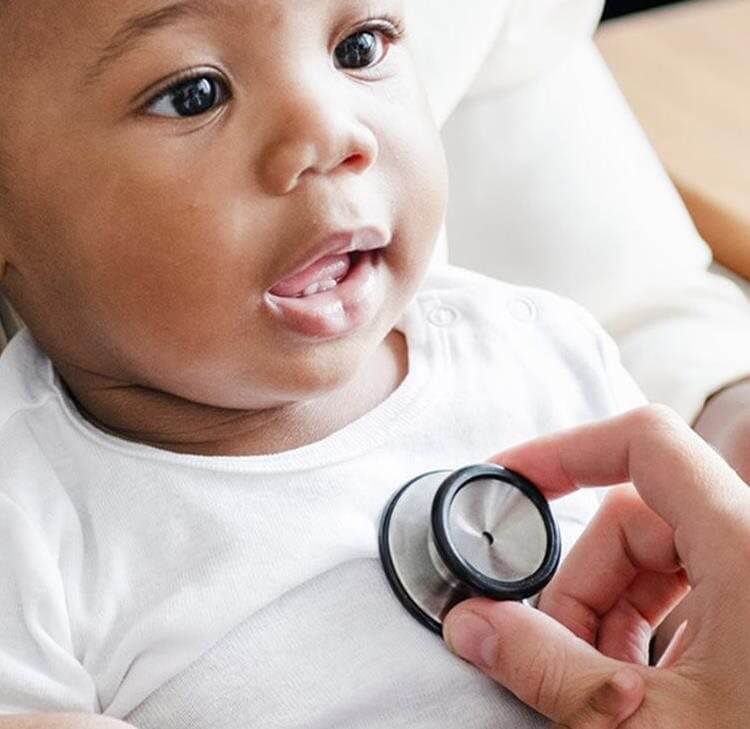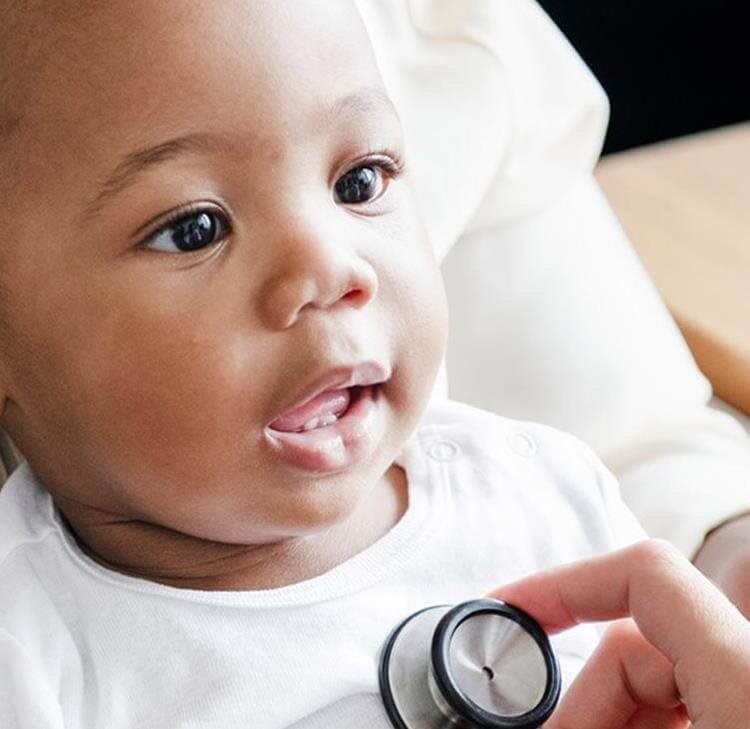The National Health Service (NHS) is poised to undergo a significant transformation with the integration of artificial intelligence (AI) in its operations, particularly in maternity care. This initiative is part of the government's 10 Year Health Plan, which aims to shift NHS services from analogue to digital, ensuring safer, more efficient care.
The adoption of AI technologies is supported by the NHS Federated Data Platform (FDP). The NHS FDP enables NHS organisations to bring together operational data – currently stored in separate systems – to support staff to access the information they need in one safe and secure environment. This means less paperwork and manual inspections for staff, allowing more time for patient care.
World-first AI early warning system
Pioneering AI technology is being developed to scan NHS systems to flag safety issues in real-time and trigger earlier crucial inspections too.
This world-first AI early warning system will launch across NHS trusts from November 2025 and will automatically identify safety concerns across the NHS, helping to prevent failures before they escalate, and ensuring that patients receive safer treatment through faster identification of problems in care.
This system will use near real-time data to flag higher than expected rates of stillbirth, neonatal death, and brain injury. This new safety warning system is a critical component of the government’s Plan for Change, which seeks to overhaul health and care regulation, root out poor performance and guarantee safe, quality care for patients.
Health and Social Care Secretary Wes Streeting expressed his confidence by stating, "this technology will save lives – catching unsafe care before it becomes a tragedy. It’s a vital part of our commitment to move the NHS from analogue to digital, delivering better, safer care for everyone."
Pregnancy scans enhanced by AI
This roll out comes amidst other developments in the use of AI technology for maternity care. The introduction of AI in 20-week pregnancy scans, as demonstrated in a March 2025 clinical trial led by Guy’s and St Thomas’ NHS Foundation Trust and King’s College London, has shown that AI-assisted scans, while still as accurate and reliable, are 40% quicker, allowing sonographers more time to focus on diagnosing conditions and interacting with expectant parents.
The trial involved 78 pregnant participants and 58 sonographers, with each expectant participant scanned twice, once using the AI-assisted scanner and once without the use of AI. The study, published in the New England Journal of Medicine AI, showed that the AI assistance scans were more reliable compared to manual measurements.
As clinical negligence lawyers in the specialised maternity division at Browne Jacobson, a recurrent issue we see is the accuracy of assessing fetal growth and fetal health. Both of which can impact on clinical decision making and planning for mode and timing of delivery, as well as neonatal care. It is therefore encouraging to see the development of technology which is hoped will improve the accuracy and reliability of antenatal care and improve outcomes for families.
Integrating AI in maternity care
The integration of AI into NHS maternity care and patient safety protocols is a testament to the ongoing commitment to innovation and excellence in healthcare. By harnessing the power of AI, the NHS is setting the stage for a future where maternity care is safer, more personalised, and efficient for all.
The integration of AI into maternity care should be acknowledged as daunting in many ways for both healthcare providers and patients/new parents.
For clinicians, this will involve a major change in practice and adaptation as AI technology is introduced. For parents, there may be understandable apprehension of relying on a technology that could be perceived as an attempt to reduce the face to face contact time with their doctor or midwife.
The 20-week pregnancy screening is however, a good example of how AI technology can be used to make best use of clinician contact time with patients. This will help improve patient care by allowing sonographers to focus on other aspects of the scan, such as communicating with parents or spending more time looking at any areas of concern.
Benefits, challenges, and legal considerations of AI in healthcare
The focus on learning from experiences and fostering change for continuous improvement is essential for high-quality healthcare. However, the greater reliance on AI also introduces significant challenges, including ethical, legal, economic, and technological issues that must be addressed.
The existing legal framework will need to shift to accommodate AI. Traditional clinical negligence claims require proving that a healthcare provider owed and breached a duty of care, causing harm that led to damages. With the involvement of AI, determining breach of duty and causation need careful reconsideration, indicating that legal adaptations may be necessary.
- Will the ‘Bolam’ test suffice? If so, who are the responsible body of medical practitioners in the relevant field? Are we talking about responsible bodies of similar clinicians, comparison with data from other forms of AI, a hybrid comparator or will a totally new test be required?
- What is the impact on obtaining informed consent?
- Where a healthcare provider delegates functions to AI, is the duty of care non-delegable or is vicarious liability owed by the employer?
Healthcare providers may argue that they should not be held responsible. Instead, they may argue that liability should fall on the supplier of the technology which caused the harm. If the technology is proven to be defective, then the normal principles of product liability may well apply (which we know is expensive and often involves group actions).
While AI can reduce fraud, AI also presents opportunities for criminals looking to take advantage. The potential impact for insurers, of AI being used to make fraudulent insurance claims is another important aspect to consider. Often documents are created or altered using AI and digital tools and deep fakes are being used in order to support claims.
For more general insights, our Heather McKay, Senior Associate specialising in data protection and Rahul Chohan, a Trainee Solicitor have produced a guide to AI in healthcare and enhancing NHS efficiency. This sets out some key concepts to look out for when discussing AI and some of the fears that AI can instil.
The future
We are optimistic that the shift towards a more digital, data-driven approach will lead to better health outcomes and a higher standard of care.
This has got to be in the best interests of both patients and healthcare providers. However, as AI continues to develop, the potential for success in bettering healthcare will only be realised if we understand how to use AI responsibly as a tool to accompany human expertise, thus keeping patient welfare at the forefront while ensuring a robust legal framework to support it.
Our specialist teams
At Browne Jacobson, we are committed to supporting NHS Trusts and health care organisations with delivering on their strategy to improve maternity outcomes.
As the use of artificial intelligence becomes more prevalent within digital solutions, our teams assist clients to identify and mitigate risk through solution-oriented and pragmatic advice.
Our firm has direct experience of advising Trusts and healthcare organisations. We advised Stroll on contracts for their ground-breaking augmented reality technology, which helps Parkinson's disease patients regain independence by improving their strength and mobility.
Our team of specialised maternity, healthcare and health tech lawyers are well-equipped to guide and support clients through these intricate legal landscapes. Whether you are a healthcare provider or an NHS Trust, we can provide expert legal advice and representation tailored to your specific circumstances involving AI and maternity related claims and queries.

Kelly Buckley
Partner
kelly.buckley@brownejacobson.com
+44 (0)115 908 4867










































